Related Research Articles
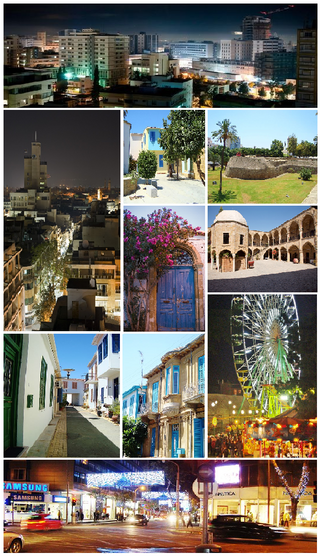
Nicosia is the largest city, capital, and seat of government of Cyprus. It is located near the centre of the Mesaoria plain, on the banks of the River Pedieos.
P'ent'ay is an originally Amharic–Tigrinya language term for Pentecostal Christians. Today, the term refers to all Evangelical Protestant denominations and organisations in Ethiopian and Eritrean societies. Alternative terms include Ethiopian–Eritrean Evangelicalism or the Ethiopian–Eritrean Evangelical Church. Sometimes the denominations and organizations are known as Wenigēlawī.
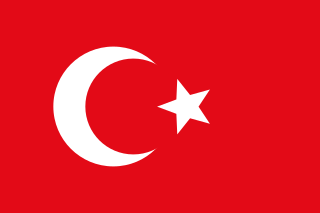
The Eyalet of Cyprus was an eyalet (province) of the Ottoman Empire made up of the island of Cyprus, which was annexed into the Empire in 1571. The Ottomans changed the way they administered Cyprus multiple times. It was a sanjak (sub-province) of the Eyalet of the Archipelago from 1670 to 1703, and again from 1784 onwards; a fief of the Grand Vizier ; and again an eyalet for the short period from 1745 to 1748.
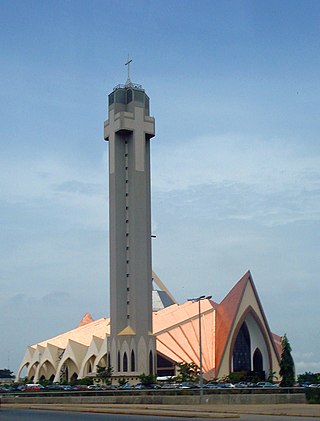
Religion in Nigeria is diverse. The country is home to some of the world's largest Christian and Muslim populations, simultaneously. Nigeria is divided roughly in half between Muslims, who live mostly in the north, and Christians, who live mostly in the south; indigenous religions, such as those native to the Igbo and Yoruba ethnicities, are in the minority. The Christian share of Nigeria's population is on the decline due to higher fertility rate of Muslims in the country.

Islam in Cyprus is the island's second largest religion and the predominant faith of Northern Cyprus. Islam was introduced to Cyprus when the island finally fell to Umayyad conquerors during the Arab-Byzantine wars. Prior to this, the Muslim presence on the island was itinerant. Conversion to Islam was not compulsory but the majority of the Catholic Latin population of the island, along with a smaller subsection of the Greek Orthodox population, converted to Islam.

The term Eastern Protestant Christianity encompasses a range of heterogeneous Protestant Christian denominations that developed outside of the Occident, from the latter half of the nineteenth century, and yet keep elements of Eastern Christianity, to varying degrees. Some of these denominations came into being, when existing Protestant churches adopted reformational variants of Eastern and Oriental Orthodox liturgy and worship. Some others are the result of reformations of Orthodox beliefs and practices, inspired by the teachings of Western Protestant missionaries. Some Eastern Protestant Churches are in communion with similar Western Protestant Churches. However, there is no universal communion between the various Eastern Protestant churches. This is due to the diverse polities, practices, liturgies, and orientations of the denominations which fall under this category, as can be seen in Western Protestantism.

Religion of black Americans refers to the religious and spiritual practices of African Americans. Historians generally agree that the religious life of black Americans "forms the foundation of their community life". Before 1775 there was scattered evidence of organized religion among black people in the Thirteen Colonies. The Methodist and Baptist churches became much more active in the 1780s. Their growth was quite rapid for the next 150 years, until their membership included the majority of black Americans.
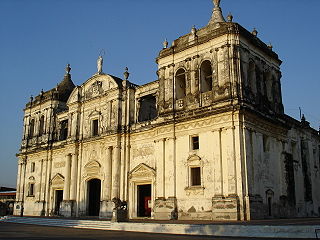
Religion in Nicaragua is predominantly Christian and forms a significant part of the culture of the country as well as its constitution. Religious freedom and religious tolerance is promoted by both the Nicaraguan government and the constitution.
The Diocese of Cyprus and the Gulf is one of four dioceses in the Episcopal Church in Jerusalem and the Middle East, a province in the Anglican Communion. It covers Cyprus and the Arabian Peninsula, Iraq and Yemen. The bishop in Cyprus and the Gulf is the Ordinary of the diocese. In every part of the diocese, except in Cyprus and Iraq, the congregations are largely expatriate, with many Christians from Pakistan, India, Sri Lanka, the Philippines and the African continent. The diocese is linked with the Diocese of Exeter in England and the Diocese of Thika in Kenya. The diocese is divided into the Archdeaconry of Cyprus and the Archdeaconry of the Gulf: Christopher Futcher was collated archdeacon in Cyprus on 7 September 2019. The Rev'd Canon Dr. Michael Mbona, a Zimbabwean serving at St. Paul's in Kuwait, was appointed as Archdeacon for the Gulf, following the retirement of long-serving Archdeacon Bill Schwartz, OBE.
Religion in Cyprus is dominated by Eastern Orthodox branch of Christianity, whose adherents make up 73% of the total population of the entire island. Most Greek Cypriots are members of the autocephalous Greek Orthodox 'Church of Cyprus'. Most Turkish Cypriots are officially Sunni Muslims. There are also Baháʼí, Catholic, Jewish, Protestant, Maronite, Armenian Apostolic, and non-religious communities in Cyprus.
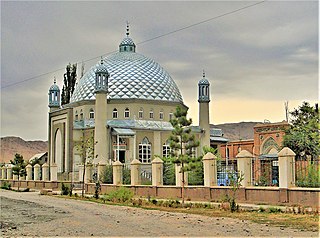
Islam is the main religion in Kyrgyzstan and the constitution guarantees freedom of religion. Kyrgyzstan is a multicultural and multi religious country with Islam, Buddhism, Baháʼí, Christianity, Judaism, and other religions all having a presence in the country. Muslims constitute the main religious group in Kyrgyzstan with about 90% of the population as of 2017.
The Constitution of the Republic of Cyprus provides for freedom of religion, and the Government generally respected this right in practice. There were few reports of societal abuses or discrimination based on religious belief or practice, and prominent societal leaders took positive steps to promote religious freedom.
Protestantism has had a small impact on Spanish life. In the first half of the 16th century, Reformist ideas failed to gained track in Castile and Aragon. In the second half of the century, the Hispanic Monarchy and the Catholic Church managed to clear the territory from any remaining Protestant hotspot, most notably after the autos-da-fé in Valladolid (1559) and Seville (1560), from then on. 16th-century Inquisition blurred differences between erasmism, iluminismo and protestantism as if they belonged to a common branch.

Protestantism is a branch of Christianity that follows the theological tenets of the Protestant Reformation, a movement that began in the 16th century with the goal of reforming the Catholic Church from perceived errors, abuses, and discrepancies.
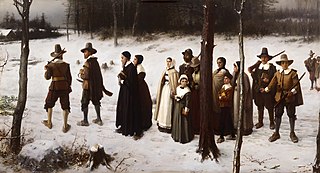
Protestantism is the largest grouping of Christians in the United States, with its combined denominations collectively comprising about 43% of the country's population in 2019. Other estimates suggest that 48.5% of the U.S. population is Protestant. Simultaneously, this corresponds to around 20% of the world's total Protestant population. The U.S. contains the largest Protestant population of any country in the world. Baptists comprise about one-third of American Protestants. The Southern Baptist Convention is the largest single Protestant denomination in the U.S., comprising one-tenth of American Protestants. Twelve of the original Thirteen Colonies were Protestant, with only Maryland having a sizable Catholic population due to Lord Baltimore's religious tolerance.
The constitution of Northern Cyprus protects the freedom of religion, and it states that Northern Cyprus is a secular state. The US Department of State report in 2002 stated that religious freedom was protected by law in Northern Cyprus and the government generally respected the freedom of religion. The freedom of religion report in 2007 by US Department of State also stated that "Turkish Cypriot authorities generally respected this right in practice" and the practice of religion was generally free. In 2009, Minority Rights Group International also reported that Turkish Cypriot authorities respected religious freedom in general.
This article documents the status of various religions in the limited-recognition state of Northern Cyprus. The dominant religion is Sunni Islam, followed by 99% of the population, with Orthodox Christianity comprising 0.5%, and the remainder of the population comprising other Christian groups and religions.

Christianity in Cyprus is the largest religion in the country, making up 78% of the island's population. The largest Christian denomination is the Greek Orthodox Church, while the rest are smaller communities of Anglicans, Roman Catholics, Latin Christians, Maronites, Armenian Apostolics, and Greek Evangelicals.
References
- ↑ US Department of State report 2022
- ↑ "Cyprus PIO: Turkish Press and Other Media, 09-08-05".
- ↑ Melton, J. Gordon; Baumann, Martin (21 September 2010). Religions of the World: A Comprehensive Encyclopedia of Beliefs and Practices, 2nd Edition [6 volumes]. ABC-CLIO. p. 843. ISBN 978-1-59884-204-3.
- ↑ Church Times website
- ↑ Trusiewicz, Daniel (25 March 2019). "Meet the Only Baptist Church on the Island of Cyprus". Word&Way. Retrieved 22 January 2022.
- ↑ Summers, Stephan; Summers, Debra (2019). "Birth of United Pentecostal church of Larnaca". Pentecostals of Larnaca. Retrieved 22 January 2022.
- ↑ The Protestants living in the occupied areas demand a church where they would be able to practise freely their worship
- ↑ US Department of State report 2022